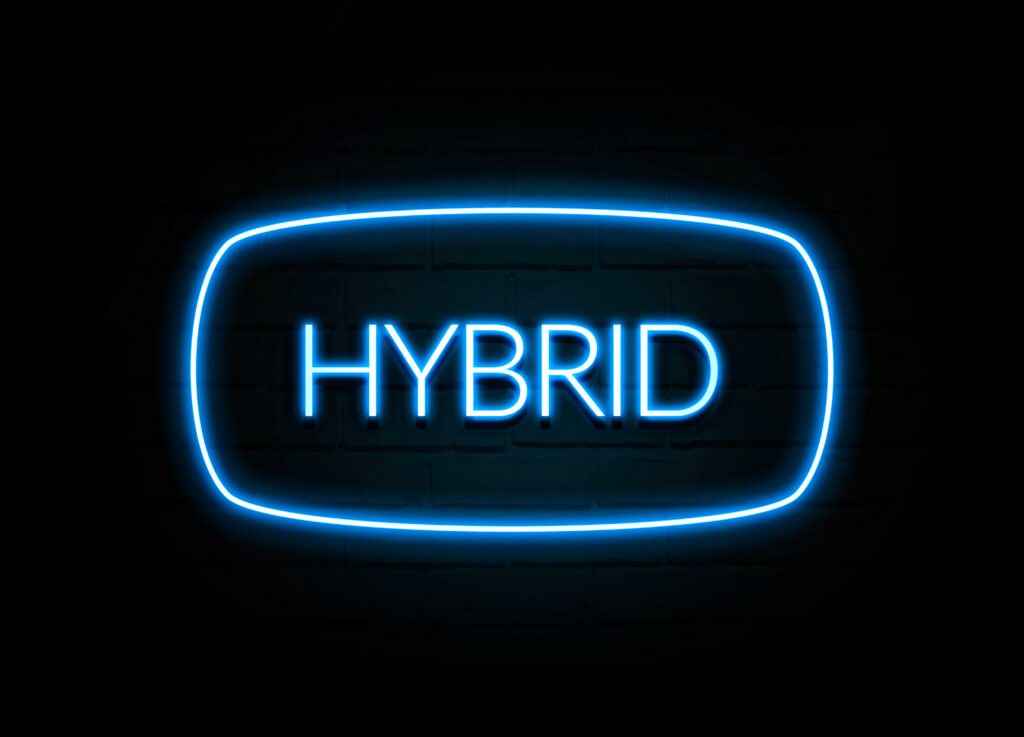AI is reshaping coaching, making personalised development accessible. But will we lose the human touch? Markus Bernhardt and Teresa Rose take us on a journey to discover
Artificial intelligence (AI) is transforming industries globally, and coaching is no exception. Once a domain reserved for senior executives, coaching is now being democratised thanks to AI-driven tools that make personalised professional development more accessible to employees at all levels. AI’s capabilities extend beyond mere scalability, as recent studies suggest that large language models (LLMs) can sometimes offer more empathetic responses than even human professionals. This raises a critical question: can AI democratise coaching without sacrificing the personal touch and insight that human coaches provide?
As AI becomes more integrated into coaching practices, we may see new pathways in coaching education, where professionals are trained to work alongside AI tools to enhance their practice
In this article, we will explore the strengths and limitations of AI in the coaching field. We’ll examine how AI scales coaching, enhances process consistency, and even challenges traditional notions of empathy, while also acknowledging its limitations in more complex, emotionally charged scenarios where human coaches are irreplaceable. Ultimately, we will look ahead to the future of coaching, which appears to lie in a hybrid model that combines the best of both AI and human elements.
AI’s role in democratising coaching
Historically, coaching has been a resource-intensive service reserved for top executives. Companies invested heavily in one-on-one sessions designed to develop senior leaders, partly because of the high cost of coaching and the personalised attention it requires. This exclusivity often meant that coaching was out of reach for mid-level managers or frontline employees, who could arguably benefit from it just as much. But with the rise of AI, this dynamic is starting to shift.
AI offers the potential to democratise coaching by making it accessible to a broader range of employees across all levels of an organisation. By automating the administrative tasks of coaching—such as scheduling, collecting feedback, and progress tracking—AI-driven platforms reduce the time and resources required for human coaches. This opens up coaching to a much larger audience without the traditional costs.
AI coaching systems can now provide personalised support at scale. This means that even employees who would not typically have access to a coach can benefit from structured, goal-oriented coaching tailored to their needs. In addition, the scalability of AI allows for coaching to be integrated into broader Learning and Talent Development (L&TD) programs, embedding personal growth opportunities within an employee’s everyday work. For example, in industries like sales or customer service, AI-augmented coaching can be deployed across entire teams, offering continuous, on-demand support in areas like performance management or leadership development.
As AI continues to evolve, the cost of coaching is expected to decrease even further, making this powerful development tool accessible to employees across socio-economic levels. The challenge for organisations now lies in integrating these AI tools effectively into their existing development strategies, ensuring they complement rather than replace human coaches in critical areas.
AI’s strengths in process consistency, memory, and neutrality
One of the major advantages AI brings to coaching is its ability to manage processes with impeccable consistency. Human coaches, however skilled, are prone to cognitive limitations, which can result in gaps in memory or inconsistent follow-up on important threads from previous sessions. This is where AI excels: its perfect memory ensures that no detail is ever forgotten. AI can track all conversational strands across multiple sessions, seamlessly weaving them back into discussions at the appropriate moments. This level of follow-through, particularly in long-term coaching relationships, is something that even the best human coaches may struggle to maintain consistently.

AI’s neutrality is another area where it outshines its human counterparts. While human coaches, no matter how experienced, can sometimes let their personal biases seep into sessions, AI’s data-driven models offer unbiased guidance. Every piece of feedback is based on structured data, ensuring a fair and balanced approach to every coaching interaction. This neutrality can be especially important in organisations looking to standardise employee development across teams or departments.
Recent studies have shown that AI is also evolving in an area previously thought to be the domain of human coaches: empathy. In a study comparing responses from physicians and AI models, AI was rated as more empathetic than doctors in certain cases. While AI cannot truly “feel” emotions, it can simulate empathy in structured environments where careful wording and nuanced responses are key. This is particularly beneficial in task-based coaching scenarios, where employees may benefit from ongoing, supportive nudges and feedback.
However, while AI is excellent at providing consistency, memory retention, and unbiased responses, it still falls short in areas that require deep emotional intelligence and human intuition, all essential in the role of human coaches in these more complex, emotionally charged situations.
The indispensable role of human coaches in complex situations
Although AI has demonstrated its capabilities in structured and task-based coaching, it cannot replicate the deep emotional intelligence, intuition, and creativity that human coaches provide—qualities that are essential in more complex coaching scenarios. For example, executive-level coaching often involves emotionally charged situations or high-stakes decision-making, where deep introspection and nuanced relational dynamics come into play. In these scenarios, human coaches excel at reading between the lines, interpreting non-verbal cues, and providing tailored strategies that go beyond data-driven guidance.

Coaching is often described as a “meta-thinking” process that requires the coach to help the client think about their own thinking. It is a reflective journey that relies heavily on the coach’s ability to ask the right questions, not only to identify surface-level problems but also to uncover deeper, underlying issues that may not be immediately apparent. This level of introspection and discovery is something AI is not yet equipped to handle. While AI can provide logical, data-backed suggestions, it lacks the emotional depth and real-time adaptability needed to navigate ambiguous or highly sensitive coaching sessions.
Human coaches also play an important role in fostering trust and building relationships. High-profile individuals, such as CEOs or C-suite executives, value the confidentiality, trust, and bespoke insights that come from in-person coaching. The relational bond between coach and client, particularly in situations where emotions run high, is something AI cannot replicate. In these cases, the human element remains indispensable, providing the kind of nuanced understanding and emotional support that AI simply cannot offer.
The future of coaching: A hybrid model
As AI technology continues to develop, the future of coaching will likely evolve into a hybrid model where AI tools and human coaches work in tandem. In this model, AI handles the administrative and routine aspects of coaching—such as tracking performance, setting goals, and providing timely reminders—while human coaches take on the more complex, emotionally charged aspects of the coaching process. This hybrid approach combines the best of both worlds, allowing organisations to scale their coaching efforts without sacrificing the personalised touch that makes human coaching so effective.
In the hybrid model, AI acts as a continuous development partner, offering real-time feedback and reminders that keep employees on track. For example, AI can be used to provide micro-coaching moments in the flow of work, nudging employees to reflect on their actions or make adjustments based on real-time performance data. Meanwhile, human coaches can step in for more in-depth, strategic sessions where complex problems or interpersonal challenges require emotional intelligence and creative problem-solving.

This hybrid approach will also have implications for the coaching profession itself. As AI becomes more integrated into coaching practices, we may see new pathways in coaching education, where professionals are trained to work alongside AI tools to enhance their practice. Coaches will need to develop a new set of skills that allows them to complement AI’s strengths while bringing their unique emotional intelligence to the table.
Some organisations are already experimenting with hybrid coaching models, blending AI-driven behavioural insights with human-led emotional support. This trend suggests that the coaching industry is on the cusp of a major transformation, one that will redefine how coaching is delivered and who has access to it.
Unimaginable combination of technology and insight
AI has the potential to revolutionise the coaching industry, making it more accessible, consistent, and affordable. By automating routine tasks and providing data-driven insights, AI can democratise coaching in a way that was previously unimaginable. However, AI is not a complete replacement for human coaches. In emotionally complex, high-stakes situations, human coaches remain indispensable, offering the deep emotional intelligence and strategic insight that AI cannot replicate.
The future of coaching lies in a hybrid approach, where AI’s efficiency is combined with human coaches’ emotional intelligence and creativity. Organisations must carefully balance the strengths of AI with the irreplaceable qualities of human coaches to create a coaching ecosystem that is both scalable and deeply personalised. As AI continues to evolve, the key will be to leverage technology in ways that complement, rather than replace, the human elements that make coaching so powerful.
Markus Bernhardt is Lead Strategist at Endeavor Intelligence
Teresa Rose is Director of ConsultHer



